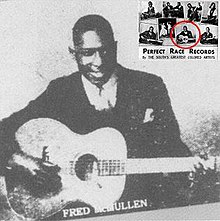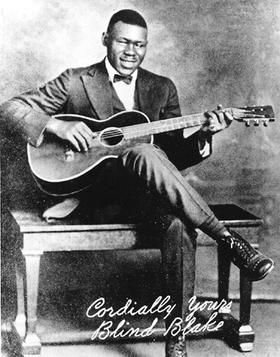
Arthur Blake, known as Blind Blake, was an American blues and ragtime singer and guitarist. He is known for recordings he made for Paramount Records between 1926 and 1932.

Blind Willie McTell was an American Piedmont blues and ragtime singer, songwriter and guitarist. He played in a fluid, syncopated finger picking guitar style common among many East Coast, Piedmont blues players. Like his Atlanta contemporaries, he came to use twelve-string guitars exclusively. McTell was also adept at slide guitar, unusual among ragtime bluesmen. He sang in a smooth and often laid-back tenor which differed greatly from the harsher voices of many Delta bluesmen such as Charley Patton. He performed in various musical styles including blues, ragtime, religious music, and hokum and recorded more than 120 titles during fourteen recording sessions.

Howard Duane Allman was an American rock and blues guitarist and the founder and original leader of the Allman Brothers Band, for which he was posthumously inducted into the Rock and Roll Hall of Fame in 1995.
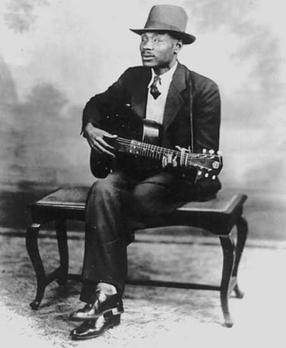
Fulton Allen, known as Blind Boy Fuller, was an American blues guitarist and singer. Fuller was one of the most popular of the recorded Piedmont blues artists, along with Blind Blake, Josh White, and Buddy Moss.

Steve J. Morse is an American guitarist and songwriter. A seven-time Grammy nominee, he is best known as the founder of the Dixie Dregs and as the longest serving guitarist for Deep Purple. Morse also enjoyed a successful solo career and was a member of the group Kansas in the mid-1980s. Most recently, Morse became a member of the supergroup Flying Colors.

Willie Johnson, commonly known as Blind Willie Johnson, was an American gospel blues singer and guitarist. His landmark recordings completed between 1927 and 1930, thirty songs in all, display a combination of powerful chest voice singing, slide guitar skills and originality that has influenced generations of musicians. His records sold well though as a street performer and preacher, he had little wealth in his lifetime. His life was poorly documented, but over time, music historians such as Samuel Charters have uncovered more about him and his five recording sessions.
James "Kokomo" Arnold was an American blues musician. A left-handed slide guitarist, his intense style of playing and rapid-fire vocal delivery set him apart from his contemporaries. He got his nickname in 1934 after releasing "Old Original Kokomo Blues" for Decca Records, a cover version of Scrapper Blackwell's blues song about the city of Kokomo, Indiana.

Robert Hicks, known as Barbecue Bob, was an American Piedmont blues musician who played 12 string guitar which was popular in the Atlanta, Georgia area at the time. A record talent scout gave him his nickname because he worked as a cook in a barbecue restaurant. One of the two existing photographs of him shows him playing his guitar and wearing a full length, white apron and cook's hat.
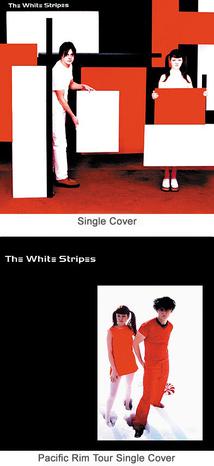
"Lord, Send Me an Angel" is a song by Blind Willie McTell of which two versions were recorded on September 19, 1933 in New York City, with Curley Weaver on second guitar. Accompanied by his wife, Kate, McTell re-recorded it as "Ticket Agent Blues" in 1935, albeit with some alternate verses. This was used as the B-side to his single "Bell Street Blues" on Decca Records. The song was covered by Detroit, Michigan garage rock band, The White Stripes, which was released as a single in October 2000.

Jesse Edwin Davis III was a Native American guitarist. He was well regarded as a session artist and solo performer, was a member of Taj Mahal's backing band and played with musicians such as Eric Clapton, John Lennon, and George Harrison.

"Rollin' and Tumblin'" is a blues standard first recorded by American singer-guitarist Hambone Willie Newbern in 1929. Called a "great Delta blues classic", it has been interpreted by hundreds of Delta and Chicago blues artists, including well-known recordings by Muddy Waters. Rock musicians usually follow Waters' versions, with the 1960s group Cream's rendition being perhaps the best known.
Robert David Hole is an Australian slide guitarist and singer known for his unique style of playing rock and roll and blues music.
Curley James Weaver was an American blues musician, also known as Slim Gordon.

Saunders Samuel King was an American R&B and blues guitarist and singer.
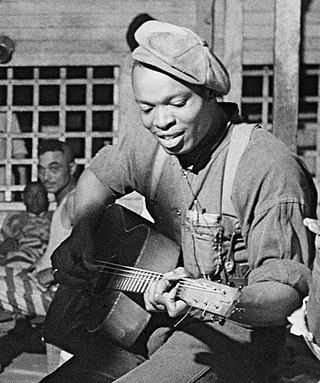
Eugene "Buddy" Moss was an American blues musician. He is one of two influential Piedmont blues guitarists to record in the period between Blind Blake's final sessions in 1932 and Blind Boy Fuller's debut in 1935. A younger contemporary of Blind Willie McTell, Curley Weaver and Barbecue Bob, Moss was part of a coterie of Atlanta bluesmen. He was among the few of his era whose careers were reinvigorated by the blues revival of the 1960s and 1970s.
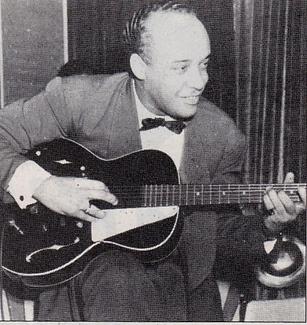
Floyd George Smith, sometimes credited as Floyd "Guitar" Smith, was an American jazz guitarist and record producer.
Atlanta blues refers to the local blues scene in Atlanta, Georgia, United States, which had its heyday in the 1920s and 1930s. According to AllMusic,"The Atlanta blues scene of the 1920s was among the most fertile in all the South, with a steady stream of rural musicians converging on the city hoping to gain exposure playing the local club circuit, with any luck rising to perform at Decatur Street's famed 81 Theatre."
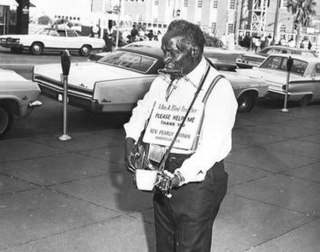
ReverendPearly Brown was an American singer and guitarist, known primarily as a street performer. He also played harmonica and accordion. Brown's repertoire included gospel blues, blues, country, and spirituals. His bottleneck style of slide guitar inspired Georgia rock and roll musicians. He performed at the Newport Folk Festival, Carnegie Hall, and—as one of the first African American performers—the Grand Ole Opry.
Cora Mae Bryant was an American blues musician. She was the daughter of another American blues musician, Curley Weaver. Bryant released two solo albums in her lifetime on the Music Maker label.
